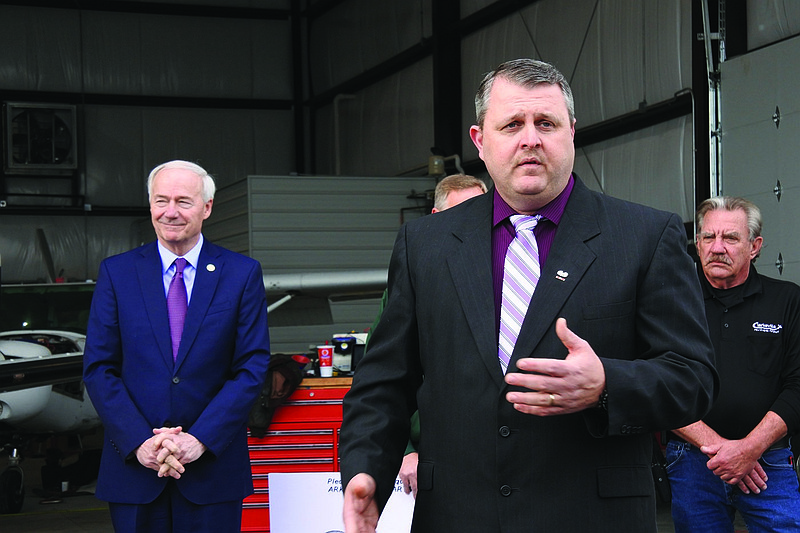Clarksville plans to build a hydrogen power plant to generate electricity for customers by 2026, pushing the Johnson County city to the forefront of a national surge to invest in the alternative power source.
The city has signed an agreement with Syntex Industries of Little Rock to design and build Arkansas' first hydrogen plant, which is planned to generate more than 500 megawatts of emission-free electricity by 2026.
"Syntex has been working with Clarksville to develop methods to store excess renewable energy and regenerate it on demand," Clarksville Mayor David Rieder said in a statement announcing the plant. "Recent technical developments and federal tax incentives have opened the door at last."
Clarksville's announcement comes amid a national surge in interest in developing hydrogen-fueled plants and using the alternative energy source to support industrial growth, with the U.S. Department of Energy estimating the effort could generate $140 billion in revenue and 700,000 jobs by 2030.
Development in Clarksville will create jobs, the mayor said. "This project offers the infrastructure to support our growing economy and bring new high paying 'ecodustrial' jobs to the area," he said in the statement.
The power plant is projected to create more than 100 jobs and begin generating power in 2025 and be fully complete in 2026. Officials said ground-breaking should take place later this year.
Syntex Industries Chief Executive Officer Tom Waggoner said in the news release that hydrogen "offers a practical pathway to reduce greenhouse gasses from power generation by storing energy from solar and wind when it would otherwise be unused."
Hydrogen as a power source has moved to the front lines of development, promoted in the Inflation Reduction Act that Congress passed last year to reduce emissions in the U.S.
Entergy Corp., the largest electric provider in Arkansas, last year gained approval to invest $2.5 billion to build a 1,215-megawatt combined cycle power facility in Orange, Texas, which is in the industrial corridor of southeast Texas. Construction started earlier this year and the plant is scheduled to open in 2026.
S&P Global Inc. cited hydrogen fuel as one of the top 10 energy technology trends for 2023, noting the U.S. plans to drop the cost of clean hydrogen by 80% in the next decade. The Inflation Reduction Act that Congress approved last year also offers tax credits to hydrogen investors and users for the first time, and the Congressional Budget Office estimated the initiative would stimulate more than $375 billion of investments in the industry.
"Accommodating federal policy has shifted the United States from laggard to leader in the development of low-carbon hydrogen production," S&P reported.
The global hydrogen generation market was valued at $155 billion in 2022 and is expected to expand at a 9.3% compound annual growth rate every year though 2030, according to Grand View Research, a market-intelligence and analysis group based in India and California.
Hydrogen can be stored for long periods and can be distributed along existing infrastructure.
